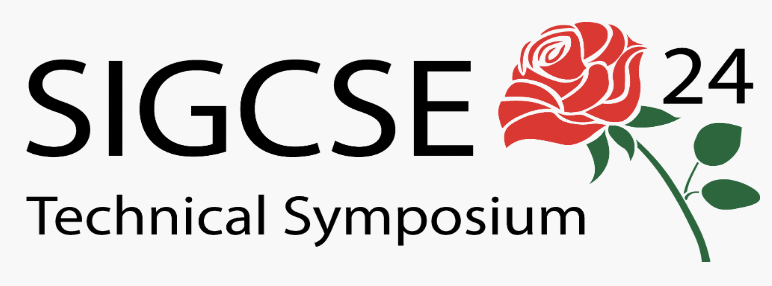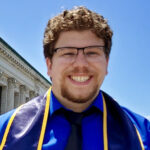Brendan Henrique will be presenting his work with pre-service K12 teachers, exploring how they learn to integrate critically conscious computing into a variety of subject areas and grade levels. His work adds to growing research in Computer Science Education exploring teacher learning of ethically-oriented computing. More specifically, he is contributing a needed focus on the intermediate processes and trajectories of learning as teachers move through their professional development programs.
Henrique, B. (Forthcoming). Exploring K-12 Teachers’ Trajectories of Engagement with
Critically Conscious Computing. Student Research Competition Entry to be presented at the Technical Symposium on Computer Science Education (SIGCSE ’24).
Abstract. In response to calls for critical computer science (CS) education in teacher education programs, universities are starting to emphasize discussions of the societal impact of technology, and to encourage students to critically interrogate CS. Prior work in these domains suggests that how teachers change throughout engagement in critically conscious computing coursework is not well understood. In order to better understand these changes, this study examined the learning trajectories of seven pre-service teachers enrolled in a critically conscious CS teaching program by inductively coding their responses to weekly reflections as well as lesson/unit plans. Novel to this approach was a focus on intermediary moments throughout the course rather than final outcomes. Findings showed that critically conscious computing curricula encouraged teachers to wrestle with the tension of CS as a powerful force in society. Teachers engaged in thinking expansively about CS and ways to integrate it into their classrooms in non-traditional ways.

